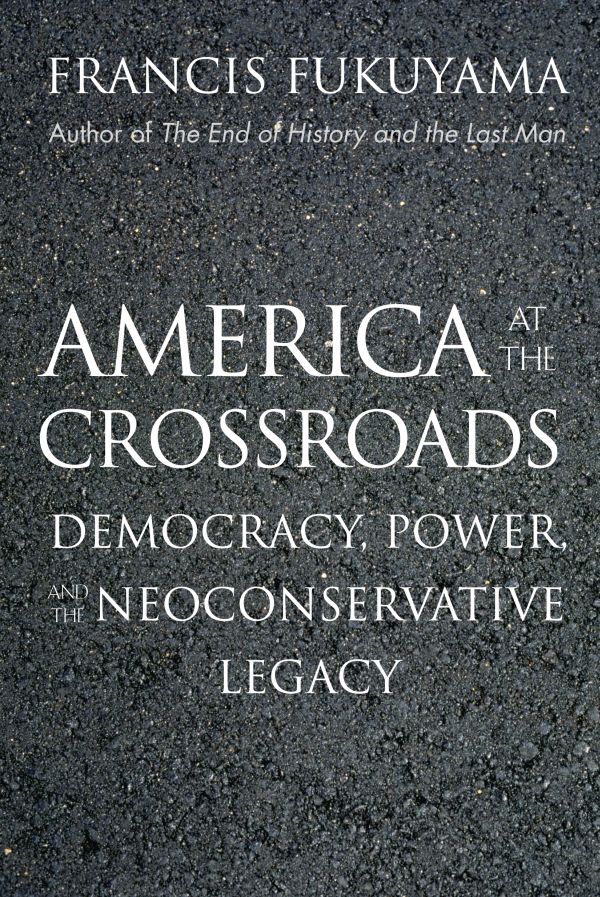“What’s maddening is the way Woodward reverses his point of view without acknowledging he ever had one — then or now. You could charge him with flattering politicians only when they’re up, and piling on when they’re down. But you might as well accuse a weathervane of changing its mind about which way the wind should blow.” Slate‘s Jacob Weisberg examines Bob Woodward’s treatment of Donald Rumsfeld through his three Dubya books (most recently State of Denial) and finds him a fickle beast at best.
Tag: Jacob Weisberg
High Wire Act.
“The Wire, which has just begun its fourth season on HBO, is surely the best TV show ever broadcast in America…no other program has ever done anything remotely like what this one does, namely to portray the social, political, and economic life of an American city with the scope, observational precision, and moral vision of great literature.” Slate‘s Jacob Weisberg joins the swelling ranks of Wire aficionados. (Season 4 is currently pulling a lowly 98 over at Metafilter.) “This year, The Wire‘s political science is as brilliant as its sociology. It leaves The West Wing, and everything else television has tried to do on this subject, in the dust.” And, in very happy news that partially atones for Deadwood‘s early demise (although that [expletive deleted] still rankles), HBO re-ups for The Wire Season 5, which will focus on the mass media. I’ll drink a spot of Jamesons to that.
Tiger in the Tank?
“Nobody’s happy with gasoline prices being where they are.” As GOP congressional leaders experience buyer’s remorse over the oil industry tax breaks they passed last year, Jacob Weisberg (who, it should be noted, could take the Metro to work if so desired) argues the virtues of more expensive gasoline: “To be sure, oil at $70 a barrel causes hardships for working people and delights some of the world’s worst dictators. But cheap gasoline imposes its own costs on society: greenhouse gas emissions, air pollution and its attendant health risks, traffic congestion, and accidents…Sustained high prices will bring about behavioral and political changes: energy conservation, public transportation, less exurban sprawl, and eventually the economic viability of alternative fuel sources such as biomass, fuel cells, wind, and solar power, which may one day undermine the power of the oil oligarchs. Are politicians too stupid to understand this, or just smart enough not to say it aloud?“
Wishful thinking dept.?
“The Bull Moose has temporarily turned into a performing elephant. But the Moose will be back — around March 2008, if everything goes according to plan.” As much of the press hammers John McCain for his blatant re-positioning maneuvers of late, Slate throws a lovefest of sorts for the mythical maverick today, with Jacob Weisberg arguing he’s really a TR progressive and John Dickerson promoting him as the happy crusader. I’ve used this line before, but it fits to a tee. Given McCain’s frequent bouts of water-carrying for the Dubya administration, my view of the Senator’s vaunted independence — until proven wrong — is the same as Sen. George Norris’ take on his progressive colleague William Borah, who indulged a similar maverick reputation back in the teens, twenties, and thirties: He only “shoots until he sees the whites of their eyes.”
The Spirit of ’94.
As Slate‘s John Dickerson surveys the likelihood of a 1994-like takeover by the Dems in November, his colleague Jacob Weisberg excoriates the Democratic leadership for lack of vision.
Used to be my homies.
 “While he remains sympathetic to the democracy-spreading mission, Fukuyama castigates the unilateral and militaristic turns that gave us such concepts as ‘preventive war,’ ‘benevolent hegemony,’ and ‘regime change.’ Neoconservatives, he contends, have abandoned their fundamental political insight, namely that ambitious schemes to remake societies are doomed to disappointment, failure, and unintended consequences. ‘Opposition to utopian social engineering,’ Fukuyama writes ‘…is the most enduring thread running through the movement.’ Yet neoconservatives today are bogged down in an attempt to remake a poorly understood, catastrophically damaged, and deeply alien semi-country in the Middle East. How did these smart people stray — and lead the country — so far off course?“
“While he remains sympathetic to the democracy-spreading mission, Fukuyama castigates the unilateral and militaristic turns that gave us such concepts as ‘preventive war,’ ‘benevolent hegemony,’ and ‘regime change.’ Neoconservatives, he contends, have abandoned their fundamental political insight, namely that ambitious schemes to remake societies are doomed to disappointment, failure, and unintended consequences. ‘Opposition to utopian social engineering,’ Fukuyama writes ‘…is the most enduring thread running through the movement.’ Yet neoconservatives today are bogged down in an attempt to remake a poorly understood, catastrophically damaged, and deeply alien semi-country in the Middle East. How did these smart people stray — and lead the country — so far off course?“
Um, well, maybe ’cause a lot of ’em read Fukuyama’s The End of History back in the day? Jacob Weisberg reviews Francis Fukuyama’s new book, America at the Crossroads, and, while it’s good to see principled conservatives take this administration’s egregiously inept Iraq policy to task, it’s also hard to believe that the neocons didn’t share Fukuyama’s earlier contention going in that “the universalization of Western liberal democracy as the final form of human government” was both an historical inevitability and in full flourish. Fukuyama can play the aggrieved realist now, but that’s definitely not how he made a name for himself.
“The Power-Madness of King George.”
 “This extremity of Bush’s position emerges most clearly in a 42-page document issued by the Department of Justice last week. As Andrew Cohen, a CBS legal analyst, wrote in an online commentary, ‘The first time you read the “White Paper,” you feel like it is describing a foreign country guided by an unfamiliar constitution.’ To develop this observation a bit further, the nation implied by the document would be an elective dictatorship, governed not by three counterpoised branches of government but by a secretive, possibly benign, awesomely powerful king.” As Dubya embarks on another weeklong campaign of fear and distortion (as per standard Rovian operating procedure), Slate‘s Jacob Weisberg gapes at the audacity of Bush’s brazenly unconstitutional ploy for power. “[I]n his white paper, Bush as much as declares: ‘I determine what my words mean and I alone determine what yours mean, too.’…Bush’s message to the courts, like his message to Congress, is: Make way, subjects.“
“This extremity of Bush’s position emerges most clearly in a 42-page document issued by the Department of Justice last week. As Andrew Cohen, a CBS legal analyst, wrote in an online commentary, ‘The first time you read the “White Paper,” you feel like it is describing a foreign country guided by an unfamiliar constitution.’ To develop this observation a bit further, the nation implied by the document would be an elective dictatorship, governed not by three counterpoised branches of government but by a secretive, possibly benign, awesomely powerful king.” As Dubya embarks on another weeklong campaign of fear and distortion (as per standard Rovian operating procedure), Slate‘s Jacob Weisberg gapes at the audacity of Bush’s brazenly unconstitutional ploy for power. “[I]n his white paper, Bush as much as declares: ‘I determine what my words mean and I alone determine what yours mean, too.’…Bush’s message to the courts, like his message to Congress, is: Make way, subjects.“
In related news, Senate opposition to the Patriot Act — All the Dems and only four measly Republicans — seems to be holding firm for now, meaning that the old, unrevised version will remain in effect for the time being. Of course, if King George actually possessed the powers he’s arrogantly allocated to himself of late, there would be no need for a Senate vote on the Patriot Act at all. Hopefully, Arlen Specter understands the danger in these breathtaking assertions of unconstitutional power by Dubya, and will make his forthcoming Senate Judiciary hearings count for something. After all, given this administration’s blatant power grab, it’s no longer hyperbole to say that our republic is at stake.
Rove the Albatross.
“Karl does not have any real enemies in the White House, but there are a lot of people in the White House wondering how they can put this behind them if the cloud remains over Karl…You can not have that [fresh] start as long as Karl is there.” As Scooter Libby pleads not guilty, the White House contemplates its Rove problem. No enemies, perhaps, but the fact that a story like this is leaking suggest someone wants Rove out. Update: In light of recent events, Slate‘s Jacob Weisberg revisits the Bush/Rove = McKinley/Hanna analogy.
Judging Judy.
“It’s not necessarily clear that a press engaged in a tabloid-esque race to the bottom, consumed by sensationalist pseudo-stories, nuggets of McNews and flag-waving rhetoric, is a free press in any meaningful sense of the term,” writes Salon‘s Andrew O’Hehir in a thoughtful piece on the Judith Miller case. But, he concludes, “[c]ompelling a reporter to reveal his or her sources to the police turns that reporter into a police agent, and that’s not acceptable, even in unsavory circumstances like these.” Update: Salon readers poke some substantial holes in O’Hehir’s argument. Update 2: O’Hehir responds.
As a counterpoint, Slate‘s Jacob Weisberg argues the following: “To Miller and the Times, confidentiality is the trump value of journalism, one that outweighs all other considerations, including obedience to the law, the public interest, and perhaps even loyalty to country. This is indeed a strong principle, but it is a misguided one. In the Mafia, keeping confidences is the supreme value. In journalism, the highest value is the discovery and publication of the truth.“
And one more view by way of James Fallows, who’s written quite a bit on journalistic ethics in his time: “So Time Inc’s Norman Pearlstein says he will turn over Matthew Cooper’s notes, because Time magazine is ‘not above the law.’…Matt Cooper, Judith Miller, and the New York Times have been saying something completely different. They have been saying that there is a conflict between what the law asks and what their professional values allow them to do. Therefore they will take the consequences. They will go to jail….They are not placing themselves above the law. They are saying that certain values matter more to them than doing what the law now (outrageously, in my view) asks them to do. Norman Pearlstein is a smart man. Can he really have missed this point? Or is he acknowledging that another set of values have come to count for more, in large-scale corporate-owned journalism?“
A Public Funeral for Private Accounts.
“George W. Bush’s plan to remake the Social Security system is kaput. This is not a value judgment. It’s a statement of political fact.” While Dubya, Cheney, and McCain (carrying water for the administration as usual) continue their respective privatization dog-and-pony shows, Slate‘s Jacob Weisberg puts PSAs in the fridge.
